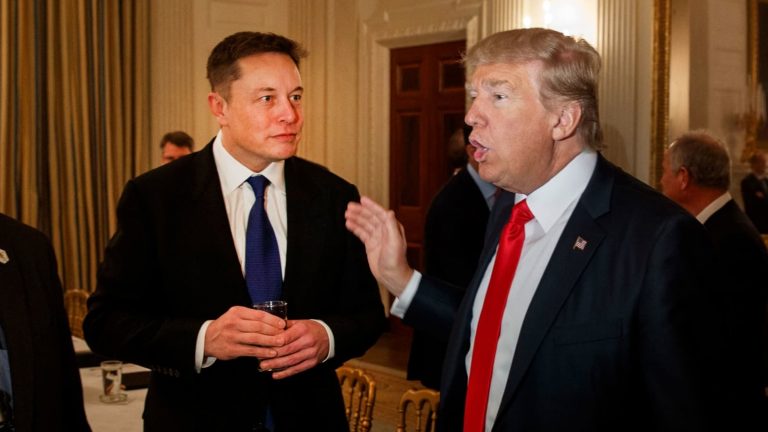
In a sweeping policy shift that could reshape the U.S. auto industry’s supply chain calculus, Commerce Secretary Howard Lutnick announced that vehicles with at least 85% domestic content will be fully exempt from the incoming auto tariffs set to take effect later this year.
That new threshold, while ostensibly neutral, leaves just one automaker in the clear: Tesla.
According to the latest figures from American University’s Kogod School of Business, only three vehicles currently meet the 85% domestic content benchmark — one variant of the Tesla Model 3 and two versions of the Tesla Model Y. Every other automaker, including legacy players like Ford, GM, Honda, and Toyota, falls short.
Register for Tekedia Mini-MBA edition 19 (Feb 9 – May 2, 2026).
Register for Tekedia AI in Business Masterclass.
Join Tekedia Capital Syndicate and co-invest in great global startups.
Register for Tekedia AI Lab.
The new tariff structure is two-tiered: a baseline 10% tariff on all foreign automobiles and components, and a steep 25% rate for vehicles and parts that don’t meet local content minimums. While automakers can still apply for a limited-time rebate program to recoup some of the costs, the window for that assistance closes in two years.
Failing to clear the 85% mark now creates serious pricing and regulatory headwinds. Automakers will either need to rapidly reconfigure their supply chains — a costly and complex endeavor — or absorb the tariff burden at the expense of their margins and competitive pricing.
Policy or Favoritism?
The policy, while presented as a measure to bolster American manufacturing, is being met with skepticism across the auto sector and political spectrum. The decision to set the exemption bar at precisely 85% has raised eyebrows, as only Tesla meets that threshold today.
In fact, even the Ford Mustang, one of the most American cars by branding and legacy, doesn’t quite qualify. Nor does the Alabama-assembled Honda Passport. That few-percentage-point gap now determines whether a model is subject to hefty tariffs or not.
Tesla CEO Elon Musk, who has become a recurring presence at the White House in recent weeks, appears to have reaped significant political capital from those visits. While the company has posted sharp revenue declines, its profits fell 71% year-over-year amid public backlash tied to Musk’s political associations, Tesla’s stock jumped 10% after news broke last week of another regulatory rollback that favored the company.
The rollback in question: the end of a federal rule requiring automakers to report non-fatal crashes involving partially automated vehicles. The Department of Transportation announced that only Level 2 autonomous systems, like Tesla’s Autopilot, would be exempted from the crash reporting mandate. Musk had previously criticized the rule, arguing it unfairly cast Tesla in a negative light.
Industry safety analysts, however, warned that eliminating reporting requirements could reduce transparency, making it harder for regulators and consumers to monitor potential flaws in automated driving systems.
A Regulatory Pattern Favoring Tesla
Taken together, these moves reflect a broader regulatory climate that appears to increasingly accommodate Musk’s agenda. First, the White House moved to lighten the regulatory load on self-driving tech. Now, it has structured a sweeping tariff exemption around a domestic sourcing threshold that only Tesla currently meets.
Other automakers, like GM and Ford, which have long argued that global supply chains are essential to staying cost-competitive, now face urgent questions about their reliance on foreign components. Japanese and European manufacturers, even those that assemble vehicles in the U.S., may find themselves boxed out of tariff exemptions unless they significantly overhaul sourcing strategies.
Smaller EV startups that rely heavily on imported components from China, including Rivian and Lucid, will be particularly hard-hit. Many have yet to build deep domestic supply chains and may struggle to scale production under the new cost burden.
Business as Politics
The timing of the executive order — released late Monday evening alongside a White House fact sheet — has only added to the sense that business and politics are increasingly intertwined. The fact sheet confirmed the new tariff guidelines but did not address why 85% was chosen as the cutoff. Nor did it provide clarity on how domestic content will be verified or audited.
As scrutiny intensifies, critics say the administration’s close ties to Musk risk blurring the line between fair industrial policy and favoritism.
Whether these changes help revive domestic manufacturing or simply reward the most politically connected players are left to the future. What’s clear is that the road ahead for the U.S. auto sector now leads through Tesla — a company that increasingly shapes not just cars, but policy itself.
The executive order will be published in the federal register later this week, with further guidance expected for automakers and suppliers navigating the complex new rules. Industry leaders, meanwhile, are scrambling to assess how quickly they can restructure operations to avoid steep penalties — or whether, in today’s Washington, playing catch-up with Tesla is even possible.



